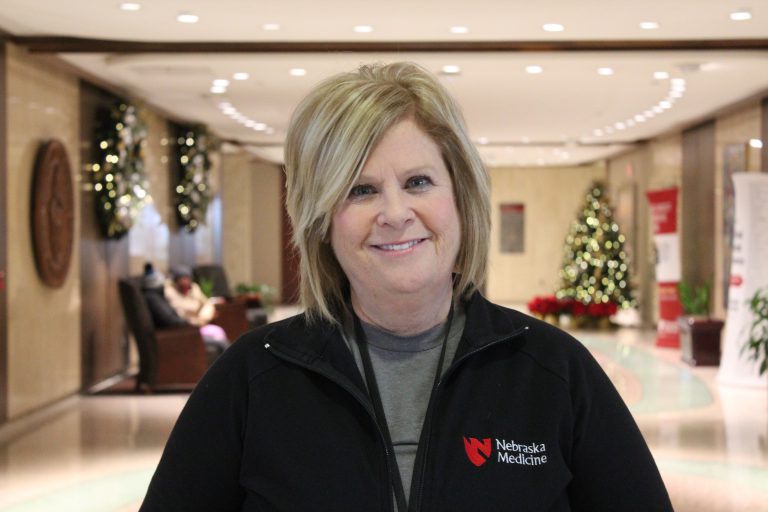
There’s no way to count how many babies Shelley Brannen, lead nurse in the Newborn Intensive Care Unit (NICU), has cared for over the last 40 years. But there’s a good chance she may remember their names.
“I’m bad with dates, but really good with names,” she says.
And here’s a good example. Last year, she was at a high school graduation party when she recognized the name of one of the guests.
“I asked him, were you a preemie?,” she recalls. “And he said yes’. I told him my name and he said ‘You’re Shelley? My mom told me all about you!”
This young boy was a patient Brannen would never forget.
“I called the neonatologist and suggested we perform some tests on the baby and he agreed,” she remembers. “The baby was in surgery later that day.”
As that baby was whisked away to surgery, she remembers the doctor saying “good catch.”
“The doctor made me feel like I knew enough to trust me,” she says.
Brannen shares that story as a way to illustrate what she loves about working in the NICU.
“I love the relationships we form with the families,” she says. “And I’ve always appreciated the way the doctors treat us.”
Brannen credits David Bolam, MD, who created a culture of empowering nurses.
“He is pro-nursing,” she says. “He listened to us and treated us as part of the team. He taught residents to ask us for input, too, because we were the ones at the bedside.”
There are many more unforgettable babies and mothers who have been through the NICU the past four decades. Brannen still receives Christmas cards every year from the mother of a baby she cared for in 1981. The family lived on a cattle farm three hours away and could not be there during the week.
“Her mother told me I was a surrogate mother to her,” she says. “That family became my family. We form these incredible bonds with the families. That’s why I never left.”
She says sometimes, babies were in NICU for years.
Brannen began her career at University Hospital in 1977 as a certified nursing assistant in the NICU while attending nursing school at Clarkson School of Nursing.
Back then, she credits the licensed practical nurses (LPNs) for teaching her what it means to be a nurse.
“The LPNs were so good at what they did,” she remembers. ”They were motherly with the babies and with me. They taught me how to be comfortable.”
Brannen remembers as soon as she learned something in nursing school, the nurses mentored her how to perform it on babies, like starting an IV.
Her years in the NICU allowed her to be at the forefront of new technology, like ECMO, in the late 1980s.
They’ve also learned a lot about caring for premature babies over the years.
“We now know less is more when it comes to a preemie,” she says. Which means they try to handle the babies less often and keep the lights down and noise minimal to mimic the womb.
“We swaddle babies and provide more nonpharmaceutical comfort measures. Babies need to be held,” she says.
“We were at the forefront of kangaroo care,” she remembers. “The earlier a baby has skin-to-skin contact, the sooner they go home.”
After 15 years of working full time, she appreciated the flexibility to go part time to raise her two children. In fact, it was her job that allowed her to meet her husband, Jeff.
“He was a pharmaceutical formula rep,” she says with a laugh.
The two have been married for 33 years. Today, she works three 12-hour shifts and has no plans to retire.
“I love what I do,” she says. “I love the people I work with. I love the families I’ve met over the years. I would do it all over again.”
“Shelley is involved with helping all of the patients have a great experience in the NICU,” says supervisor Chris Overfelt, NICU nurse manager. “She is very focused on making every family feel welcome and comfortable with all aspects of their baby’s care. Shelley has led efforts to grow our NICU donation account by organizing a NICU fundraiser and worked with several staff members to compile a NICU cookbook. All funds go to the purchase of age-appropriate toys for our NICU infants. Shelley is one of our two day-side lead nurses. She works with all of our neonatologists and nursing staff to ensure a seamless patient admission and a high-quality patient experience for the infants and families to the NICU.”